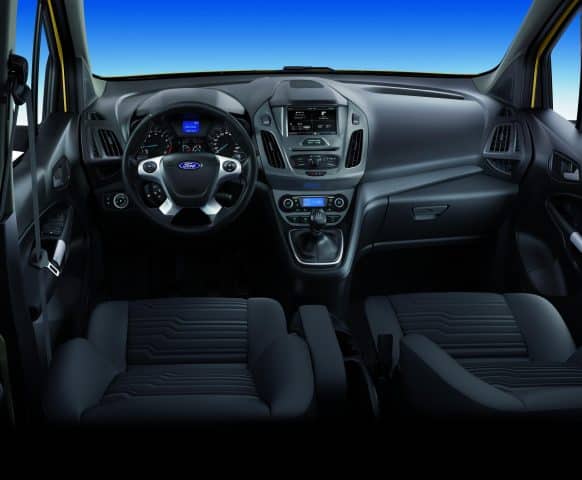
The latest addition to the Ford Transit Connect line-up will offer buyers class leading fuel efficiencies as well as connectivity technology and driver assistance aids.
The new van comes with a 1.5 litre TDCi diesel unit which should deliver impressive economy of 74mpg in the Econetic version.
That’s around 6% better economy than the 1.6 litre TDCi engine it replaces. The CO2 emissions are 99g/km.
Ford says that its Transit Connect will also be the first in its segment to include technology such as lane keeping assist and traffic sign recognition – it’s also the first van in Europe to come with Ford’s excellent Sync2 connectivity system.
Other features include a blind spot information, automatic high beams and the programmable MyKey system.
Ford Transit Connect sells faster than rivals
Since its launch in 2013, the Ford Transit Connect has been hugely popular with its sales grow faster than any of its rivals.
Available as a double-cab-in-van and van body styles with L1 and L2 variants, demand will continue to be strong.
Among its attractive reasons for buying, the Transit Connect has load areas of 2.9 cubic metres and 3.6 cubic metres in versions with a full bulkhead or 3.7 cubic metres and 4.4 cubic metres including the van’s front load space area.
The Connect is also capable of carrying payloads of up to 1,000 kg.
Ford’s marketing director, Phil Hollings, said: “Thanks to its smart looks, capable load space and great fuel economy, the all-new Transit Connect is a real hit with businesses.”
New diesel engine for the Ford Transit Connect
The new diesel engine is available from this summer though this is the Econetic version which produces 100PS and features stop-start and active grille shutter technology.
There will be more variants of the engine available from the Spring next year to replace all of the existing 1.6 litre diesel units currently available for the vans.
Also available from the summer will be an efficient 1.0litre EcoBoost petrol engine which also has 100 PS and delivers 50 mpg and has CO2 emissions of 129g/km.

